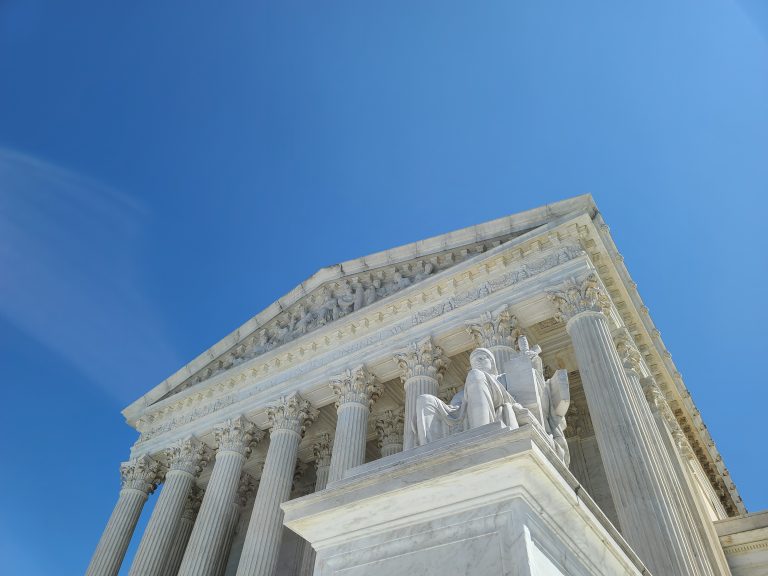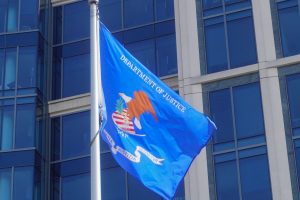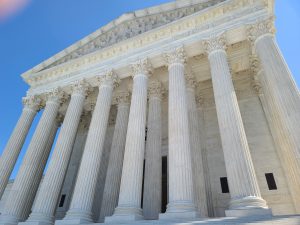A rebuke of the Aloha State’s top court will not be the Supreme Court of the United States’s (SCOTUS) next Second Amendment contribution.
The justices on Monday denied a request for certiorari in Wilson v. Hawaii. The case is an appeal of a Hawaii Supreme Court decision reinstating gun charges against a man for carrying a firearm without a permit at a time when the state rarely issued them to its citizens under a now-unconstitutional may-issue regime.
Justice Clarence Thomas, joined by Justice Samuel Alito, wrote separately to criticize the Hawaii court’s ruling but defend the justices’ cert denial on procedural grounds.
“Although the interlocutory posture of the petition weighs against correcting this error now, I would grant certiorari in an appropriate case to reaffirm that the Second Amendment warrants the same respect as any other constitutional right,” he wrote.
The denial marks the latest instance of the High Court dashing gun-rights advocates’ hopes for Second Amendment relief in cases that have not yet exhausted all lower court avenues. The Court has similarly emphasized its wariness of taking gun cases in “an interlocutory posture” in orders rejecting appeals to review Illinois’ “assault weapon“ ban and New York’s post-Bruen gun-carry restrictions.
Gun-rights supporters hoped the Hawaii case might become an exception to the trend due to the Hawaii Supreme Court’s particularly antagonistic treatment of the Supreme Court’s current majority and its Second Amendment precedents. The case centered around Christopher Wilson’s 2017 arrest for carrying a loaded gun after he trespassed onto private property during a hike. Though he did not have a permit to carry the weapon, the arrest occurred when the state operated a discretionary licensing regime that almost never granted permits to its citizens–similar to the one SCOTUS struck down in New York State Rifle and Pistol Association v. Bruen.
Wilson was successful in getting his gun charges dismissed as unconstitutional in a state circuit court. However, the Hawaii Supreme Court reinstated them earlier this year after rejecting SCOTUS’s Bruen decision.
“Article I, section 17 of the Hawaiʻi Constitution mirrors the Second Amendment to the United States Constitution,” the Hawaiian court wrote in its decision. “We read those words differently than the current United States Supreme Court. We hold that in Hawaiʻi there is no state constitutional right to carry a firearm in public.”
Rather than subjecting Wilson’s claims to the text, history, and tradition analysis prescribed by SCOTUS, the state Supreme Court instead invoked Hawaii’s unique cultural ethos as its guidepost for reviewing gun laws.
“The spirit of Aloha clashes with a federally-mandated lifestyle that lets citizens walk around with deadly weapons during day-to-day activities,” the Hawaiian justices wrote. “The history of the Hawaiian Islands does not include a society where armed people move about the community to possibly combat the deadly aims of others.”
Thomas’ statement obliquely took issue with that aspect of the decision, noting that the Hawaiian court “ignored our holding“ in Bruen. But he trained most of his fire on its holding that Wilson did not have standing to challenge his charges under the state’s licensing law, since he never applied for one, and could only argue that licensing requirements are per se unconstitutional.
“Because the constitutional violation occurs as soon as an individual’s right to bear arms is inhibited, States cannot mandate that would-be gun owners go through an unconstitutional licensing process before they may invoke their Second Amendment rights,” he wrote.
He urged his colleagues to take up a better case when presented with an opportunity to “make clear” that Americans are free to invoke the Second Amendment as a defense against “unconstitutional firearms-licensing schemes.”
“This Court’s intervention clearly remains imperative, given lower courts’ continued insistence on treating the Second Amendment ‘right so cavalierly,'” he wrote.
Justice Neil Gorsuch wrote separately to emphasize his concerns with the criminal justice implications of Hawaii’s ruling. He noted that the Hawaii Supreme Court’s failure to consider Wilson’s Second Amendment defense “invites with it the distinct possibility that Mr. Wilson may be convicted of, and ordered to serve time in prison for, violating an unconstitutional law.”
He, like Thomas, pointed to the interlocutory posture of the considered ruling and suggested that the Hawaii Supreme Court should “revisit and supplement” its Second Amendment analysis through the post-judgment appellate process.
“If not, Mr. Wilson remains free to seek this Court’s review after final judgment,” he concluded.







One Response
“If not, Mr. Wilson remains free to seek this Court’s review after final judgment,”
So, what is considered “final judgment”? The federal appeals court? If so, how does the case jump from state supreme court to fed court?